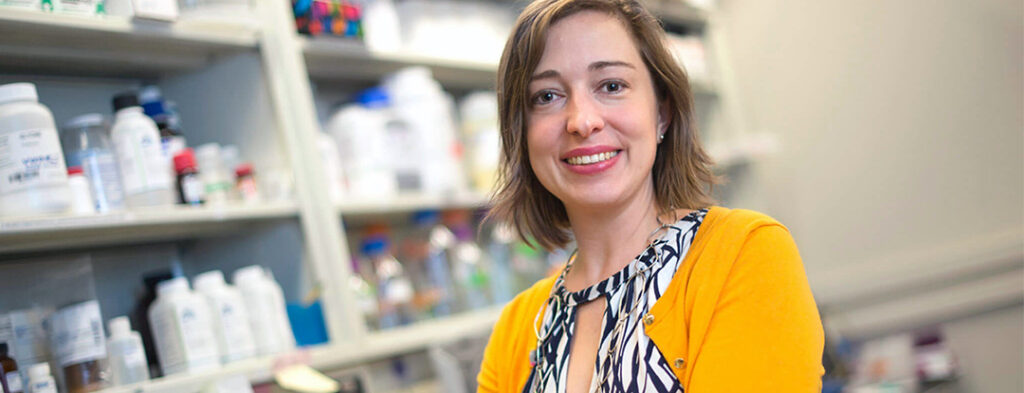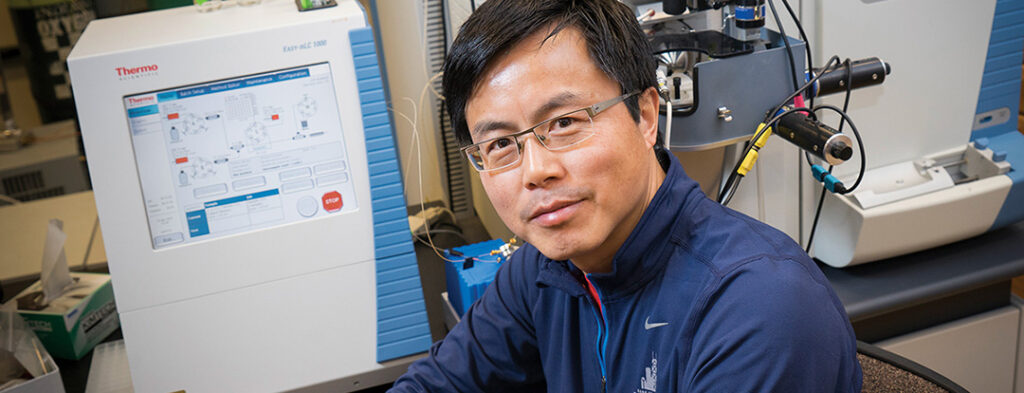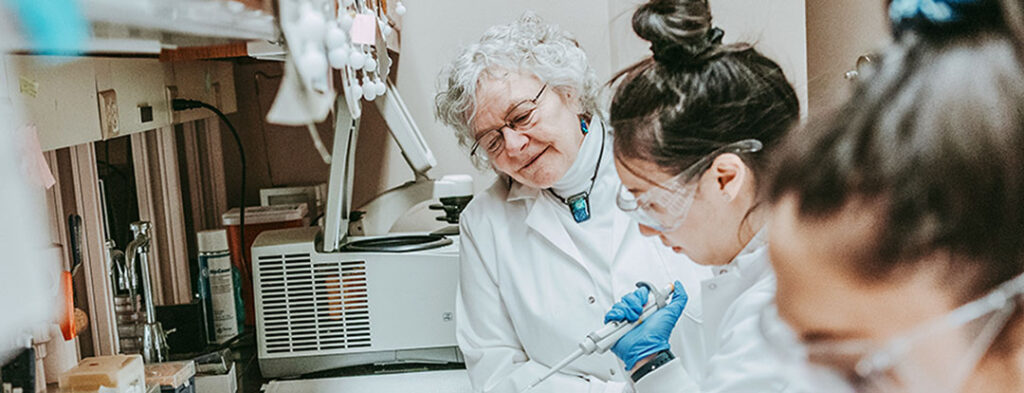
The Catherine Peachey Breast Cancer Research Grant continues to advance the work of Purdue Institute for Cancer Research scientists and others who are pursuing solutions to breast cancer’s most difficult challenges, from metastasis and therapy resistance to early detection.
Supported by the Catherine Peachey Fund in partnership with the Women’s Global Health Institute, the program promotes projects that are well positioned to move from basic discovery toward clinical application. The initiative honors Cathy Peachey, one of the founders of the Indiana Breast Cancer Coalition, whose legacy continues to inspire progress in breast cancer research and treatment.

Targeting chromatin remodeling to limit metastasis
The 2025 grant was awarded to Emily Dykhuizen for her project targeting the PBAF chromatin remodeling complex in metastatic breast cancer. Her team is investigating how disrupting this complex can reduce tumor growth and improve immune response. The work could help identify a new therapeutic strategy to combat metastasis, a leading cause of mortality among breast cancer patients.
Dykhuizen is a professor of medicinal chemistry and molecular pharmacology.

Developing blood-based biomarkers for early detection
W. Andy Tao, recipient of the 2024 Peachey Grant, is developing blood-based biomarkers to detect BRCA-related breast cancer before tumor growth occurs. His research focuses on identifying functional proteins in plasma-derived extracellular vesicles that could serve as highly sensitive indicators of early-stage disease, offering a new avenue for noninvasive screening.
Tao is a professor of biochemistry.
Enhancing radiotherapy through immune-targeted nanoparticles
Matthew Scarpelli, also recognized in 2024, is studying macrophage-targeted therapies to make radiotherapy more effective for breast cancer patients. His work repurposes an FDA-approved iron nanoparticle, ferumoxytol, to target tumor-supporting macrophages, with the goal of improving radiation outcomes and anti-tumor immune responses.
Scarpelli is an assistant professor of medical physics.

Uncovering lipid metabolism’s role in breast cancer metastasis
Dorothy Teegarden, recipient of the 2023 Peachey Grant, is investigating how cellular lipid storage contributes to metastasis. Her research examines proteins associated with cytoplasmic lipid droplets and their roles in cell adhesion and ferroptosis, two pathways that may influence how breast cancer cells spread to new sites.
Teegarden is a professor of nutrition science, director of the Women’s Global Health Institute, and associate director of the PICR Cancer Research Training and Education program.
Revealing genome integrity defects that drive breast cancer
Ann Kirchmaier, also a 2023 recipient of the Peachey Grant, is investigating how errors in DNA replication and repair contribute to breast cancer development and progression. Her project aims to identify genome-wide sites of replication fork stress and determine how those defects influence drug sensitivity in tumor cells. Working with co-investigator Nadia Atallah Lanman, the team’s research explores how targeting these vulnerabilities could inform precision medicine strategies and lead to more effective chemotherapeutic approaches.
Kirchmaier is an associate professor of biochemistry.
Engineering 3D microtumor models for drug discovery
Luis Solorio, awarded the Peachey Grant in 2021, is developing a high-throughput, magnetically actuated 3D microtumor model to study how the physical properties of the tumor environment influence metastatic breast cancer growth and drug responsiveness. His research aims to improve understanding of how mechanical forces in the metastatic microenvironment affect whether tumor cells remain dormant or continue to grow, with the goal of enabling more precise drug evaluation.
Solorio is an associate professor of biomedical engineering.
Together, these projects reflect the strength and breadth of Purdue’s breast cancer research. By supporting early-stage, high-impact studies, the Peachey Grant program empowers PICR investigators to pursue new scientific directions that could one day lead to more precise, effective, and life-saving breast cancer treatments.